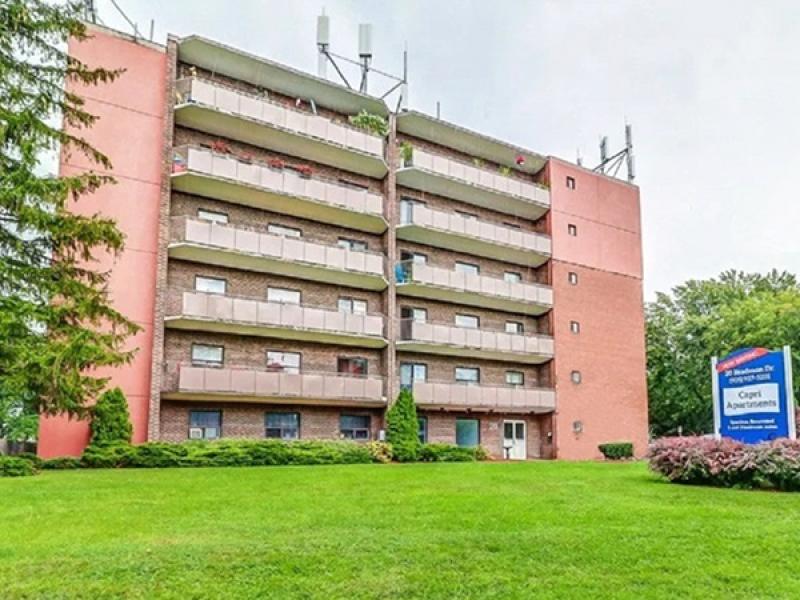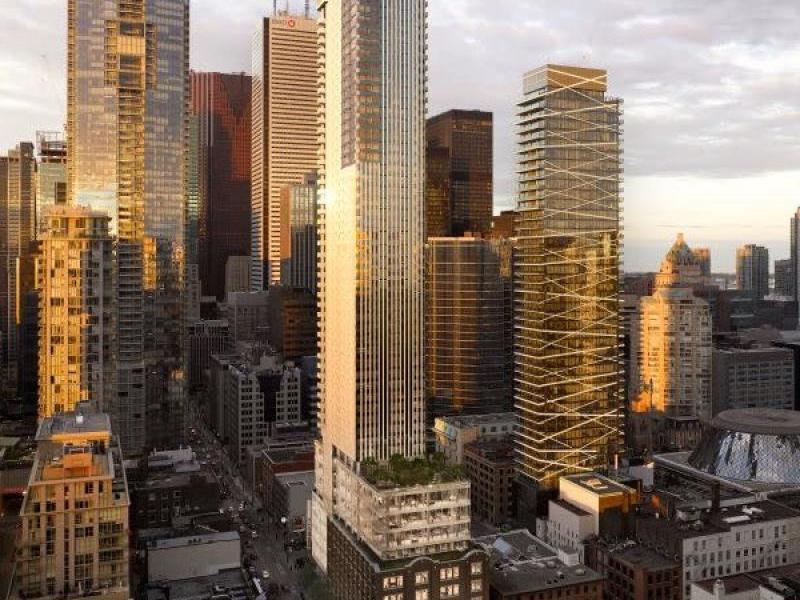
There were two main issues at the forefront of many conversations at the Western Canada Apartment Investment Conference in Vancouver on April 4: Canada's record population growth spurred by immigration, and the increasingly high cost of homeownership in the west.
While these two factors spell opportunity for landlords with desirable homes to rent and developers who can continue to add purpose-built rental units to these markets, several challenges continue to prevent serious supply expansion. These include permitting delays, rising construction costs and high interest rates.
The situation also illustrates how tough it is for residents and newcomers in Vancouver, Calgary and Edmonton to find good homes at reasonable prices.
The rental picture in the west
About 38 per cent of households in Vancouver rent. In Edmonton, that number is 31 per cent and in Calgary 29 per cent of households rent, according to Statistics Canada figures shared in a presentation by Eric Bond, senior specialist, market analysis with CMHC Vancouver. The share of renter households has climbed since 2011 in each of these cities as fewer people are transitioning into homeownership.
This comes amid tight vacancy in all the markets with Vancouver renters facing sub-one per cent vacancy; Calgarians looking at just over two per cent, and a slightly more balanced vacancy of four per cent in Edmonton.
Homeownership costs create logjam
“We can see how average condominium prices have risen out of reach for many tenants, particularly in Vancouver, and that's even before we consider the effect of the recent interest rate increases,” Bond said. “In Calgary and Edmonton, prices remain much more accessible; particularly in Edmonton, where some of the older stock remains available at lower prices.”
In Calgary, it's about 16 per cent more expensive to own a condo than to rent a similar apartment, with higher interest rates contributing to most of that increase. The gap is wider in Vancouver, where it costs 51 per cent more to own your apartment than to rent an equivalent. In Edmonton, it’s actually about three per cent less expensive to own a condo apartment than to rent one.
This challenge will worsen though, as the cost to get a mortgage remains elevated for all borrowers, while inflating construction prices and borrowing costs continue to add to developers' burden to build new rental units.
“We have not yet seen the full impact of higher interest rates on rental construction in our housing stats data,” Bond said.
Immigration is booming and that likely won't change
Canada’s population grew by 1.05 million people to 39.57 million in 2022, according to StatCan. The majority of that growth, or 96 per cent, was due to international immigration.
New immigrants are more likely to rent, while also paying more for their homes than the average Canadian population, said Bryan Yu, chief economist, Central 1 Credit Union.
In Vancouver, the business case to build new rental homes is strongest. Bond highlighted that the average spread in price between occupied and vacant rental units is extreme, so many people aren't moving and turning over the rental market. “If you happen to be renting... (and want) to move to an identical unit across the hall or down the street, you would be looking at approximately a 43 per cent increase in your rent,” Bond said.
Slowing inflation, stable interest rates could ease strain, eventually
Meantime, nobody knows exactly where the economy is headed, but it looks like the Bank of Canada has reached the peak of this period of interest rate hikes as inflation cools off, Yu said.
“We do believe...that the Bank of Canada (BoC) is going to hold at four-and-a-half per cent through the course of 2023,” Yu told the forum. “We don't see them cutting.”
Yu said Canada’s 2023 GDP growth is tracking as flat by Q4, or could even drop into a mild recessionary period. This pullback could take a bite out of inflation while the BoC watches from the sidelines. Canada's employment market looks strong and supply chains are easing, Yu said.
With the federal government planning to welcome 400,000 to 500,000 newcomers each year through 2025, demand for rental homes is going to remain powerful, Yu added.

When it comes to financing new rental projects, sorting out the budget is the main challenge for developers and builders, said Eric Horie, senior managing director, head of origination, Canada at Trez Capital, during a panel at the forum.
"Can you make your pro-forma (work) over the term of construction? The cost of inflation continues to be there," Horie said, adding that carrying a construction loan at current interest rates while facing construction delays can seriously erode profitability.
Another issue to watch for is whether new or deeper rent controls from governments come into play amid the housing affordability crisis, Horie said. "There's going to be a lot of noise about the need for rent controls."
Cynthia Jagger, a principal with Goodman Commercial in Vancouver, said the appetite for investors to buy apartment buildings in Vancouver remains strong. "Look outside," she said. "I don't need to sell Vancouver. Vancouver sells itself."
The market remains anchored in stability for investors. It's low yield for owners, but it's also low risk, Jagger said, noting that apartments in Vancouver can help to diversify any portfolio and reduce overall risk.
Population boom intensifies Alberta's rental housing situation
While Edmonton isn't seeing the same housing affordability and vacancy crisis, there is still rampant demand for housing, said Amit Grover, a principal with Avison Young in Edmonton. It's a very exciting time for owners and developers who can proceed with apartment building projects, but industry there is also facing rising construction costs that can hurt plans, Grover said during a panel.
"We are also seeing record migration," Grover said. "So, even if we do bring new supply to the market at this point, we're going to be behind. We've got a bit of a logjam going on with migration we've never seen before."
Roughly 95,000 people moved to Alberta in the last two quarters alone, many of them to Calgary, said James Ha, president with Boardwalk REIT. That equates to about 200,000 people per year who will need roughly 75,000 homes, Ha estimated.
"We don't have 75,000 homes under construction in Alberta. We have half that," Ha said. "How do these housing providers provide roofs for all those people?"
With less taxes, less regulation and more access to capital, Ha noted, answering his own question.
-30-










